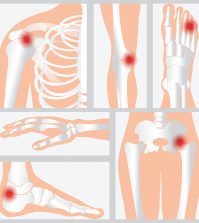- Make It Yourself Lavender Heart-Shaped Bath Bombs!
- 20 Things You Never Knew About “Down There”
- 12 Best Foods For Those Suffering From Arthritis Pain
- 12 Personal Hygiene Mistakes Almost Everyone Makes (Mom Never Told You About #4!)
- 15 Medicinal Plants And Herbs From The Cherokee People
- 12 Mind-Blowing Benefits Of Drinking Coconut Water During Pregnancy
- 12 Outstanding Winter Foods That Won’t Fatten You Up Like A Christmas Turkey
Nature Vs. Nurture In Longevity – Do Genes Really Determine How Long We Will Live?
Nature versus nurture is perhaps the most persistent question in science. We wonder how much of our personality is determined by our genetics and how much is determined by our own environment or culture. How much of our height is determined by good nutrition and how much is determined by our DNA? Well, this debate goes much further than simple aspects of who we are. The question of nature versus nurture also applies to how long we live! Is it possible that our age is determined as much by DNA as it is by factors such as diet and tobacco usage? A new research study gives very interesting evidence!
Researchers from University of Edinburgh, in the United Kingdom, studied genes from 606,059 individuals. They then compared the results to the lifespan of their parents. They found that a great deal of lifespan — or how long a person lives — is due to lifestyle factors such as diet, tobacco, exercise, and healthcare. However, they also found specific genes that affect lifespan. Many of these genes affect the way the body interacts with environmental exposures or lifestyle factors. Let’s explore these lifestyle and genetic factors that researchers discovered.
Lifestyle Factors
- Smoking – No surprise here. Researchers found that smoking was associated with a shorter life. Specifically, individuals who smoked a pack of cigarettes a day died almost 7 years earlier.
- Body Mass Index (BMI) – Individuals with a larger BMI had a reduced life expectancy. For every unit decrease in BMI, individuals lived about 7 months longer. For example, assuming everything else is the same between two individuals, a person with a BMI of 30 can expect to live 7 months longer than an individual with a BMI of 29.
- Education – Every year of education beyond high school was associated with an 11 month increase in lifespan! So, that extra year you spend in college will pay off by adding nearly an extra year to your life.
Genetic Factors
- Apolipoprotein E (APOE) – APOE is a gene which instructs the body on how to make specific types of protein. Unfortunately, researchers found that a rare mutation in this gene was associated with an increased risk for developing dementia. This leads to a reduction in lifespan by approximately 11 months.
- Lipoprotein A (LPA) – The lipoprotein carries cholesterol in the bloodstream. It is related to cardiovascular disease and diabetes. A mutation that raises low-density lipoprotein or “bad cholesterol” can reduce lifespan by as much as eight months.
READ ALSO: 11 Secrets to Health and Longevity
Estimates vary. Many experts believe that as much as 25% of lifespan or life expectancy can be attributed to genetics. However the vast majority of these genes have yet to be discovered. Regardless, scientists estimate that 75% of longevity and life expectancy is due to lifestyle and environment. The good news is these are things we can change! It is never too late to achieve a healthy weight, quit smoking, and maybe even go back to school! Because, a long life, is definitely something worth investing time and energy to create!
References:

































